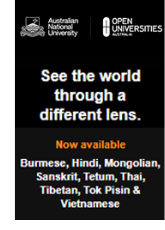Only by considering right-wing extremist groups a genuine threat to society can intelligence agencies and law enforcement prevent avoidable tragedies, Vernon White writes.
Across the world, there has been a growing group of right-wing ideologues who are branching off from mainstream society – what is known as the right-wing extremist movement.
Australia is not immune to this movement, and indeed it is certainly not a new phenomenon in the country, with radical right-wing activity existing for more than half a century. But, its recent rise, in particular in opposition to Islam, has begun to raise even more serious concerns for governments, law enforcement, and citizens alike.
Right-wing extremism describes a wide coalition of groups with varying ideologies, but in its modern iterations, a core component of its focus is on nationalism in international policies and on being ‘anti-establishment’ by opposing the state on the domestic front.
To make these seemingly contradictory positions work together, it is the norm for those involved in right-wing extremist groups to maintain the role of an imaginary threat – as in the QAnon conspiracy – that must be combated to save the nation. This allows them to maintain a sense of national allegiance while explaining their opposition to their own nation’s ‘establishment’.
Many of the members of these communities believe that society is collapsing, and that their engagement is necessary to combat the group or groups that are causing that collapse. These groups are nearly always identified as coming from a specific ethnicity, culture, or religion, and almost all right-wing extremists are strongly anti-immigration.
Over time, these kinds of views have become more prominent in the community. In Australia specifically, this shift toward the mainstream came to a point in 2015 when the Australian Liberty Alliance came to prominence alongside the return of Pauline Hanson’s One Nation to the Senate in 2016, with both parties boasting a growing list of members, and other parties of similar stripes beginning to contest Australian elections with varying success.
Some divergent political views shouldn’t be surprising to anyone in a country where free speech is respected.
When this is the case, one might expect that views will shift to the left and the right of the political centre occasionally, but what was unique about this shift is how extreme these views are.
The movement of extremists from life on the fringes to being a mainstream political movement shows that they are becoming more organised and attempting to increase their influence, and this should be of concern to governments and society alike. These extremist groups often target people who are isolated, with the movement giving them purpose or an outlet for negative feelings.
As we have seen in the United States recently, such movements have even had real success, such as with the election of Marjorie Taylor Greene, who although a registered Republican, has ties to far-right extremist groups.
The growth of this movement could be a wake-up call. Policymakers should know how damaging such groups can be to a democratic society and must act. These groups had members engaged in the Capitol riots in Washington and some countries are considering which, if any, of these right-wing groups should be identified as terrorist organisations.
Canada, for instance, recently listed the white supremacist Proud Boys as a terrorist group through its terrorism listing process. For Australia’s part, Australian Security Intelligence Organisation (ASIO) Deputy Director Heather Cook advised at a parliamentary hearing in September 2020 that far-right activities now take up roughly a third of ASIO’s operations, up from 15 per cent in 2016.
In that hearing, Cook identified that this was a growing problem during the COVID-19 pandemic as lockdowns led to growing anti-government feelings in some quarters, adding fuel to the flames.
Considering all this, governments need to take action to hold such groups accountable for their actions. As in Canada, who in its listing of Proud Boys as a terrorist organisation put it beside the likes of Al-Qaeda and Al-Shabab, treating these groups as what they are – incredibly dangerous – allows government to surveil their activities, which will be key for intelligence agencies and law enforcement going forward.
Considering the global reach of this threat and the concerns being raised by security analysts and agencies, it will be important that resources are dedicated to the oversight of their activities and their threat is taken seriously.
T hat oversight will also require governments to support the communities feeling the wrath of the actions of these groups. Agencies will need to counter hate propaganda and the white supremacism of these groups.
hat oversight will also require governments to support the communities feeling the wrath of the actions of these groups. Agencies will need to counter hate propaganda and the white supremacism of these groups.
Ultimately, only by truly taking this threat seriously, and understanding that the tragedies that have occurred in other countries like the United States and New Zealand could easily happen in Australia, can leaders keep the country safe from the rising threat of right-wing extremism.





 Racially and ethnically motivated terrorism
Racially and ethnically motivated terrorism
 Targeting terrorism in cities
Targeting terrorism in cities